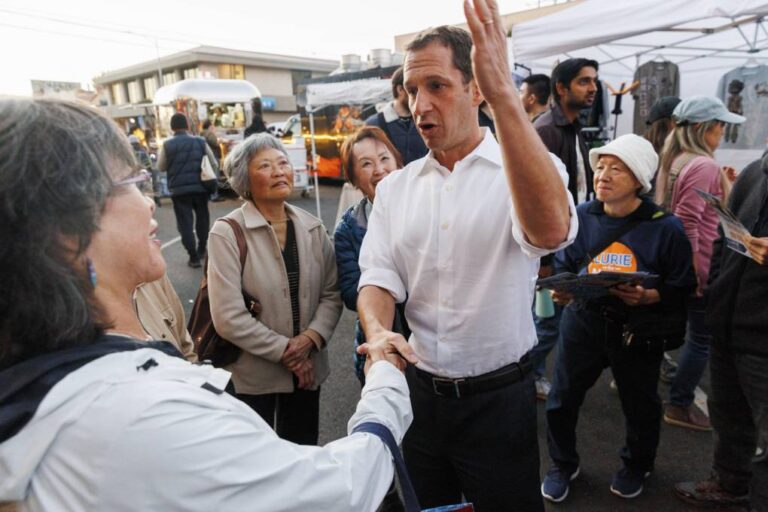This wave of political change in Bay Area cities could have significant implications for city management, government transparency, and local labor unions, especially those representing urban workers. Some progressives argue that the new preference for startup campaigns has left the traditional power pipeline in which candidates without large financial resources can rally support while slowly climbing the local government ranks. There are concerns that this could be a challenge.
An heir to the Levi Strauss fortune, Lurie benefited from record spending, much of it self-financed, and became the first mayor elected with no administrative experience since Jim Rolfe in 1911. Ta. When Mahan won the mayoral race in 2022, he did so. After only two years on the City Council, he has the least administrative experience of any mayor since San Jose voters began directly electing City Council members in 1966.
By blaming “insiders” at City Hall, both Mr. Mahan and Mr. Lurie were able to tap into voters’ dissatisfaction with widespread and visible homelessness, increases in shoplifting and commercial robberies, and the ongoing disruptions caused by the pandemic. Their years of experience outside government (Mr. Mahan is CEO of citizen engagement technology platform Brigade, and Mr. Lurie is founder of anti-poverty nonprofit Tipping Point Community) have helped them navigate local government bureaucracies. He argued that a cultural shift could be achieved within the organization.
In his victory press conference Friday, Lurie promised a “government centered on accountability, service and change” that would overcome years of corruption scandals. It was a message that reflected the “common sense, accountability and transparency” that Mahan called for in his 2022 campaign.
Neither candidate emerged completely independent of the city’s existing power structure. Lurie grew up among San Francisco’s financial elite, and his work at Tipping Point brought him into close contact with city leaders trying to reduce homelessness. Mahan had the support of incumbent Mayor Sam Licciardo and the city’s powerful business community.
But Wunderman said voters see these political outsiders as better able to take a data-driven approach to reducing homelessness, crime and blight, and they ask tough questions of city department heads. He said it is likely.
“‘Why do we have so many employees in the city? What can we get out of the work of these departments and the people in them?'” Wunderman said. “‘What kind of management do you carry out?’
Many of these questions could cause conflicts with existing city employees and the unions that represent them.
Mahan has been in talks with the city’s labor unions since taking office, and last year voted against a deal that would have increased wages and benefits for city workers. Lurie’s relationship with labor is less clear. Although he received the support of a small number of labor unions, most labor groups supported other candidates in the mayoral race.
IFPTE Local 21, which represents municipal workers in the Bay Area’s largest cities, opposes Mahan and strongly supports Shengtao in Oakland. In San Francisco, voters recommended only that former interim Mayor Mark Farrell be removed from ranked-choice voting in the mayor’s race.
“We really hope that the Daniel Lurie administration will prioritize support for the workers who actually run this city,” said IFPTE Local 21 President Bianca Polovina. .
Polovina said the results of the mayoral election should not be interpreted as a rebuke to organized labor, noting that a majority of IFPTE-nominated supervisory and city council candidates across the three cities won. did.


